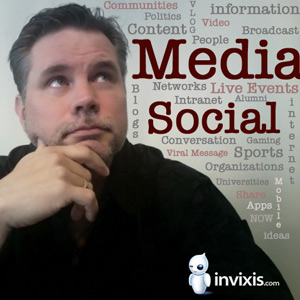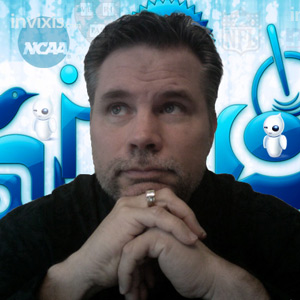After our initial interview with you back in December, we decided to do some digging. There was something about you that intrigued us. You are not the typical “tech guy.” Often although not always a technology leaders past and path follow a predictable pattern; high school geek turned college genius turned internet sensation.. think Twitter, Facebook, Google and many others. But sometimes the path toward success is a bit more ….. “colorful” and interesting. So after doing some digging we were pleased to find that your past & path are anything but typical.
So today we would like to focus on that past & path. We thank you for your willingness to share.
Chris Potoski:
It’s a pleasure to be back and thrilled to find out that I’m “colorful!” Although I’d be interested to understand your definition of success.. not sure I have achieved that yet. Right now I’m a broke guy with big ideas. < everyone laughs >
TT:
So tell us about your childhood? < everyone laughs > What we want to do today is somehow chronicle your path from Eagle Village to Merchant Who. We hear a lot of stories that go from the MIT’s to internet stardom but relatively few .. actually none that have gone from juvenile detention to biotech exec to internet success. I think it is this “path” that makes your personality so interesting. So how about we start with: How is it that you came to speak at homes for troubled youth?
CMP:
So yeah.. my path has not been typical < everyone laughs again >. Without going all the way back, I spent the majority of my junior high and high school years in the care of ” The State of Michigan ” at a facility called Eagle Village. I actually have fond memories of Eagle Village and the people there. I still button the top buttons of my shirts when I hang them up and when I think about the Emig family or Reed City High School, it brings a smile to my face.
Statistics for juveniles who are in the “Care of the State” are bleak. For example only 12% ever graduate high school and over 61% end up in jail. So to go from Eagle Village to college graduate was fairly rare accomplishment. I was proud of that accomplishment and desired to give something back. I wanted .. and still want “troubled youth” to understand that they do not have to be lumped into these bleak statistics. There is hope & limitless opportunity.
Part of this “giving back” included a series of speaking engagements where I spoke directly to the youth. It’s one thing for a counselor to speak to these guys, it’s another thing for them to hear from someone who sat where they are now. I really have a heart for their situation(s).
TT:
We appreciate your willingness to share and applaud your involvement.
CMP:
It’s my pleasure.
TT:
Although we would love to go back even farther, lets press forward. How did you end up in college and did you study technology?
CMP:
So after I was discharged from Eagle Village I was put on a state program called independent living. Essentially I was considered an adult by the state. They provided me an “allowance” and a terrific “social worker” named Bob Kozlowski. Other than that I was pretty much expected to make my own way.. which I truly enjoyed! Because I needed to work, finishing traditional high school was challenging. I received my GED and decided I was either going to college or into the military. One of the few colleges in the state of Michigan that would accept a student with a GED was Ferris State University.
I applied .. and was turned down…. numerous times! Rather than accept defeat I moved to Big Rapids MI, lived in a rented room and showed up at the admissions office every single day. I don’t recall her name but there was one remarkable lady who eventually let me in on a probationary term for a summer semester. The rest is history. I eventually transferred from Ferris State to Central Michigan University and graduated with a 3.8 GPA and a double major in Phisiology & Psychology. I also began my masters courses.
As far as studying technology, keep in mind, I’m 40. So at the time I was in college there really wasn’t much in the way of formal training in technology. State of the art at that time was Word Perfect and DOS. Microsoft Word as we know it today wasn’t even released until 1995. The only true formal training in technology came through the study of math and engineering. Something I may go back and study for fun someday.
TT:
So what happened after college?
CMP:
Well, I met my bride and best friend in college and we were married before I graduated. And yes we are still happily married to this day. On the very day of graduation we left the ceremony, hopped into a Ryder Truck, still in my cap n gown and moved to Florida. Because of my independent living status, I was able to obtain a number of grants and student loans to help pay for college. I worked nearly full time throughout and more than full time in the summers. So unlike many, as a college graduate I actually had some money in my savings. Not much but close to 15k. My wife and I were determined to spend it all before we started “our careers”. We unpacked the Ryder truck into our apartment in Ft. Lauderdale and headed to Mexico.
We took close to four months and backpacked through the country. It still remains the greatest experience of my life. We are still friends with locals we met on that trip. And yes… we spent every penny.
TT:
I’m jealous! So now you find yourself back in Florida, newlyweds, broke and no jobs. What happened from that point?
CMP:
Like so many times in my life, I just buckled down and did what needed to be done… I went job hunting! I picked up a series of books entitled: “Knock Em Dead” which covered everything from writing resume’s to interviewing and set out to find my first “real job.”
Call it luck, divine intervention or karma but my early career found me at the right places at the right times. It also helped that I am a natural extrovert and am willing to outwork anyone. Gary Player once said “The harder I work, the luckier I get ” … that’s me. I feel like most people I meet, especially in technology are “smarter” than I am, but I will out-read, out-study, and out-work anyone to become one of the best. I’m terribly self competitive.
This “luck” coupled with hustle placed me in an area of healthcare that was somewhere between biotechnology and the business of disease management. Regardless of what you called it.. it was new and the playing field was level. It did not matter if you had one year of experience or 20 we were all learning and starting from square one. This is where that self competitive nature of mine benefited me. It wasn’t about the money, I wanted to be looked upon as one of the most knowledgeable people, an expert if you will in my field. From sports to business, as a kid through adulthood, I have always been this way.
In the short period of time from 1995 – 2003, I went from a phone based sales position at Weatherby Healthcare to the Vice President of Development at NHC, the country’s preeminent disease management company. The truth is that responsibility was more than my 30 years could handle. The presentations to large crowds, executives at publicly traded companies and boards from prestigious universities didn’t phase me. I excelled at that. But I was ill equipped to deal with the stress and in March of 2004 I collapsed with a heart attack.
It was this event that caused me to re-evaluate what I was doing and led me toward the slower paced, less stressful technology industry < laughter erupts >.
TT:
So let me get this right, in order to relax you decided to become a technology entrepreneur?
Check Out This Socia Media Article Titled - Invixis Founder Chris Potoski Part Two [ Interview ]
 Often although not always a technology leaders past and path follow a predictable pattern; high school geek turned college genius turned internet sensation.. think Twitter, Facebook, Google and many others. But sometimes the path toward success is a bit more ….. “colorful” and interesting … which brings us to our interview with Chris Potoski, social media evangelist and co-founder of Invixis Media Systems. Mr Potoski’s history, experience, path and outlook were so intriguing to us that we conducted the interview in two parts. Part two will be released just after Christmas and trust me… you won’t want to miss it!
Often although not always a technology leaders past and path follow a predictable pattern; high school geek turned college genius turned internet sensation.. think Twitter, Facebook, Google and many others. But sometimes the path toward success is a bit more ….. “colorful” and interesting … which brings us to our interview with Chris Potoski, social media evangelist and co-founder of Invixis Media Systems. Mr Potoski’s history, experience, path and outlook were so intriguing to us that we conducted the interview in two parts. Part two will be released just after Christmas and trust me… you won’t want to miss it!
Talk Teck (TT ): Admittedly we didn’t know much about Chris Potoski, the thoughtful, passionate, gentle giant behind the quietly growing micro-social company Invixis Media Systems. Chris is not your typical bluejean, t-shirt & flop flop wearing tech guy. He’s the kind of guy who actually wears button down shirts, slacks and dress shoes to the office not because he’s pretentious but because he’s more comfortable. Chris, a family-oriented, athletic, wine snob with an impressive background in biotech, sat down with TalkTeck to discuss micro social media and their ambitious MerchantWho.com project ( expected to go live Q1 2011 ).
So Chris, welcome and thanks for setting aside some time to chat with us.
Chris Potoski ( CMP ): Thanks for having me, it’s an unexpected pleasure.
TT : We have to admit, we didn’t know much about Invixis Media Systems prior to this interview. It was a press release regarding the television show Ghost Lab that piqued our interest. We visited your corporate website as well as the paranormal social network at EverydayParanormal.com which caused us to ponder… What exactly is micro social media and where do you plan on taking it?
CMP: Well first of all thank you for asking that question first, usually it’s “So tell us about your logo … he’s so cute” < everyone laughs >. So when we began the Site Rhythm project there were already macro social powerhouses in the social space such as Facebook, Myspace, Twitter, Ning etc. As an individual who owned a reasonable number of domains ( around 1000 ) I was fascinated with the possibilities social media offered. As someone who was involved in corporate contracting for years however, I was and remain astounded that any content company would actually abdicate their social power and content to these sites and or companies.
I also find it challenging to locate and consolidate topics of interest on the macro social sites. If I search for “wine” at Facebook or Myspace I end up with thousands of results that I then have to visit, filter, monitor and or post separately to. I would rather go to winelibrary.com and know that everyone there, and all of the information on that site is related specifically to wine. I love Gary’s site which btw would be an ideal micro social destination.
So in short, micro social refers to smaller, customized, niche based, social media networks.
TT: We’d love to explore the, “actually abdicate their social power and content ” statement further but for now let’s stick with Invixis & Site Rhythm which we assume is the product name given to your software. When did you begin the project and what were the initial goals?
CMP: So when we began the Site Rhythm™ project in 2006 we had three goals:
1. To couple the content rich properties of sites driven by software such as WordPress and Joomla with the undeniable benefits of social media properties such as YouTube, Facebook and Myspace.
2. To differentiate our software platform.
3. To differentiate the business model.
Check Out This Socia Media Article Titled - Social Media Evangelist & Invixis Founder Chris Potoski [ Interview ]














